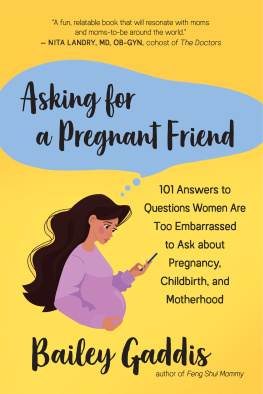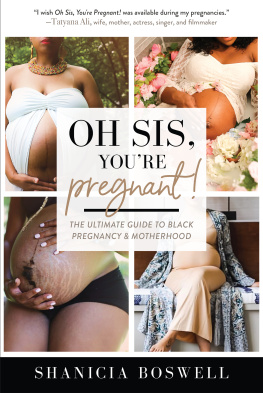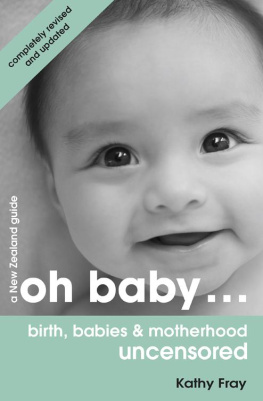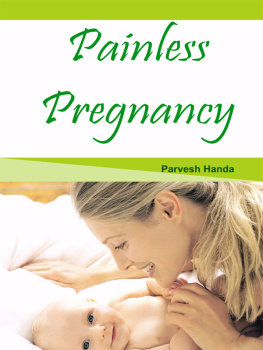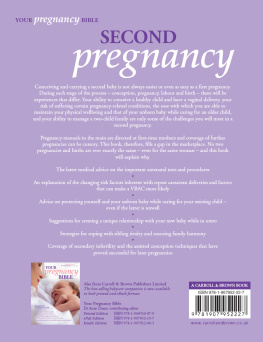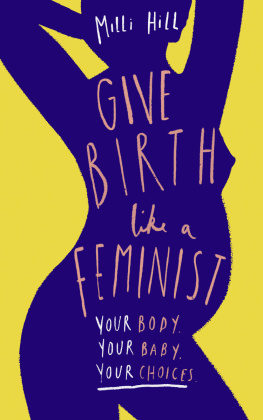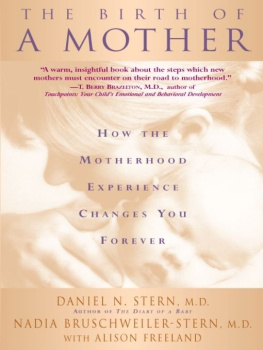First published in Great Britain in 1979 by Penguin Books this edition published in 2018 by
Policy Press University of Bristol 1-9 Old Park Hill Bristol BS2 8BB UK Tel +44 (0)117 954 5940 e-mail
North American office: Policy Press c/o The University of Chicago Press 1427 East 60th Street Chicago, IL 60637, USA t: +1 773 702 7700 f: +1 773-702-9756 e:
Ann Oakley 2018
British Library Cataloguing in Publication Data
A catalogue record for this book is available from the British Library.
Library of Congress Cataloging-in-Publication Data
A catalog record for this book has been requested.
ISBN 978-1-4473-4934-1 hardcover
ISBN 978-1-4473-4938-9 ePub
ISBN 978-1-4473-4939-6 Mobi
ISBN 978-1-4473-4937-2 ePdf
The right of Ann Oakley to be identified as author of this work has been asserted by her in accordance with the 1988 Copyright, Designs and Patents Act.
All rights reserved: no part of this publication may be reproduced, stored in a retrieval system, or transmitted in any form or by any means, electronic, mechanical, photocopying, recording, or otherwise without the prior permission of Policy Press.
The statements and opinions contained within this publication are solely those of the author and not of The University of Bristol or Policy Press. The University of Bristol and Policy Press disclaim responsibility for any injury to persons or property resulting from any material published in this publication.
Policy Press works to counter discrimination on grounds of gender, race, disability, age and sexuality.
Cover design by blu inc, Bristol
Front cover: image kindly supplied by istock
Readers Guide
This book has been optimised for PDA.
Tables may have been presented to accommodate this devices limitations.
Image presentation is limited by this devices limitations.
From Here to Maternity was originally published as Becoming a Mother in 1979. It was the report of a research project I carried out as a follow-on from my study of housework. The housework study had alerted me to the importance of first-time motherhood in changing the trajectory and tenor of womens lives, and in playing a key role in erecting those gender divisions that construct women as an oppressed social group. Oppression was the language of the 1970s, a time when feminist activists and academics in Europe and North America were stitching together an analysis of the structures, systems and ideologies of womens confinement to a special place in a mans world. From Here to Maternity and the research on which it draws reflected this renewed focus on understanding how women and motherhood are gendered in a patriarchal social system, but what the book set out to deliver was not an academic treatise: the aim was to provide an account of the transition to motherhood in the words and through the eyes of women who experienced it. Most of the text consists of direct quotations from taped interviews with women having their first babies in London in the mid-1970s. These are framed with short commentaries by me as the principal researcher on the project, and they are laced with a few simple statistics showing the generalities of the womens replies to a series of four searching interviews conducted in pregnancy and the early months of motherhood. I insisted (with some difficulty) that the publisher should reverse normal typesetting practice, placing the womens words in a bold font, and mine in the more hesitant italics. Not only were the womens narratives (in my view) far more succinctly articulated and entertaining than any sociological analysis could ever be, but there was also a strong need at the time to insist on the importance of womens own knowledge about motherhood. For too long, motherhood had been the territory of expert proclamations and distortions; obstetricians and paediatricians and psychologists and philosophers and an industry of popular advisors had all insisted that they knew better than women themselves what happens to womens bodies, minds and lives when they have babies.
From Here to Maternity is probably the most popular book I have written. It got a good deal of media attention, including a four-page spread in the womens glossy magazine Over21 under the caption What its really like to have a baby, Thus, pregnancy may not be an illness, but its common discomforts are not cured by more and more medical antenatal monitoring; the agonies and ecstasies of birth are poorly served by dehumanizing hospital care; the behaviour of little babies can severely challenge their mothers; and the routines of childcare often expose the deceitful logic of both equal parenting and romantic love. In all these respects, the experience of motherhood conflicts with its institutionalization.
Books such as Of Woman Born and From Here to Maternity which focus on motherhood as experience do seem especially liable to be met with extremes of applause and denigration. Because they are read in some quarters as anti-motherhood, they slip easily into the role of demon texts.
The British Medical Journal s reviewer deemed From Here to Maternity useful in educating professionals about motherhood, and it singled out for particular attention the womens accounts of postnatal depression and anxiety as a unique record of a poorly understood phenomenon. This second volume tangles in considerable detail with the issue of social versus medical influences on how mothers feel after childbirth, but the qualitative accounts are here in From Here to Maternity: the crushing numbness that can follow a birth over which a mother feels she has little control; the cumulative insult of multiple, poorly explained technical procedures; the extraordinary (but yet ordinary) isolation and exhaustion of finding oneself suddenly in charge of another human life.
It is instructive to note that a google search carried out today using the terms first-time motherhood lists as component searches all the following: lonely motherhood quotes, motherhood isolation, motherhood loneliness, becoming a mother a research synthesis of womens views, motherhood feels lonely, why is motherhood so hard, lonely mum blog and motherhood is the loneliest thing in the world. Where is the joy and deep satisfaction that the women in From Here to Maternity also talk about? Why is it so difficult for the frameworks of understanding we apply to motherhood to encompass ambivalence, passions of both love and anger, the experience of both agony and ecstasy? There has been an explosion of literature about motherhood since the 1970s, with research conducted in at least 14 countries using variably sized samples (ranging from 1 to 23,000) and an increasing focus on issues of identity and maternal mental health.
The substantive themes of From Here to Maternity and Women Confined have been taken up by a number of authors. In The Mask of Motherhood , American writer Susan Maushart talks about the social mask newly-delivered mothers develop to hide the chaos, difficulty, and confusion of their condition.
Asher comments in her book Shattered that the accounts given by the women in From Here to Maternity remain startlingly resonant despite the time that has elapsed since they were collected. Two obvious questions about the findings of From Here to Maternity are whether the same study repeated would yield the same findings; and what the women who took part in the study would now say, looking back at what had happened to them and how they felt about it then. These questions followed me through various changes in my research interests and academic preoccupations after the book was published until I was able, together with colleagues in the Social Science Research Unit at the UCL Institute of Education, to try to answer them. In 2007-11 we used the same sampling methods as in the From Here to Maternity research to identify a sample of 71 women having their first babies in London; we interviewed them in pregnancy and afterwards, as before, but with an extra interview when the babies were eighteen months old, to allow for the social changes since the first study which see many more mothers returning early to employment work.


